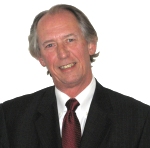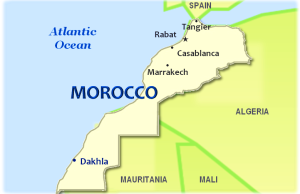Updated
Holidays and Refugees: In Moroccan Sahara – Robert M. Holley
.
* “I like being with visitors to the south when they have a chance to take a personal look at the place with their own eyes. They are invariably surprised to discover that daily affairs in the Moroccan Sahara are really not so different from anywhere else in the country.” *
.

Robert M. Holley, Senior Policy Adviser, MACP
Robert M. Holley, MACP
January 9, 2014
Just before Thanksgiving, I was in the Moroccan Sahara with a few new acquaintances. It was their first visit to the region; I have twice spent the Thanksgiving holiday there with friends.
 Even had a turkey dinner there a few years back at a kite surfing camp on the beach outside Dahkla.
Even had a turkey dinner there a few years back at a kite surfing camp on the beach outside Dahkla.
You can read a lot of nonsense about life in the Moroccan Sahara on various websites. Relying on these “news” outlets, unfortunately, provides a very distorted view about what life there is really like on a day-to-day basis.
It’s the principal reason I like being with visitors to the south when they have a chance to take a personal look at the place with their own eyes.
They are invariably surprised to discover that daily affairs in the Moroccan Sahara are really not so different from anywhere else in the country.
There are good roads, clinics, hospitals, decent housing, kids going to school in their smocks, people strolling sociably along boardwalks and town streets at night, new airports, some good hotels with Internet connections, all manner of shops and normal commerce and more tourists than you might imagine camped along an undeveloped and truly beautiful desert coastline.
But that certainly is not the image you might get if you only read the web portals that largely describe the place as a hotbed of insurrectionist activity and repression. Nothing could be further from the truth.
I wish more people with a professed political interest in the place would take the time to go have a look for themselves and simply chat with people there about their daily lives.
Are there issues that need attention in the Moroccan Sahara? Yes, there are.
But it really should not come as any great surprise to talk to people there and learn that the issues they care about most are the same ones people care about anywhere else – a good job, decent housing, facilities for health and welfare, a good education for their children and available infrastructure to make daily life a pleasant and rewarding experience.
Are the locals concerned about the larger political issues of the future of the region?
Of course they are – and for one very good reason.
Most have been separated from family and loved ones who are forced by their Polisario masters to live on the other side of a defensive military wall in squalid refugee camps in southern Algeria.
When I meet new people in the Sahara and talk to them about political issues, I always end my interviews asking them what message they would like me to take back to the United States.
What do they want Americans to know and what do they want Americans to do.
Almost invariably I get the same answer – that this problem has been going on for far too long and it needs the help of the United States to bring it to a fair conclusion.
And why – because they want to have their mothers, fathers, sisters, brothers, grandparents, aunts, uncles and their many cousins home in the Moroccan Sahara where they belong.
Not stuck in some forsaken refugee camp in a foreign land and denied the right to choose where they want to be by people who do not represent their best interest and who only seem to want to prolong this problem for as long as they can to serve their own narrow political ambitions.
We have a lot to be thankful for here in America. Our loved ones may be scattered about the country or close at hand, but no one is preventing any of us from living or moving about wherever we please.
What people in the Moroccan Sahara would like most from us is that we help ensure that their families in those refugee camps be given the same free choice.
Not so much to ask – and probably something we can do.
Robert M. Holley is Senior Policy Advisor for the Moroccan American Center for Policy, MACP